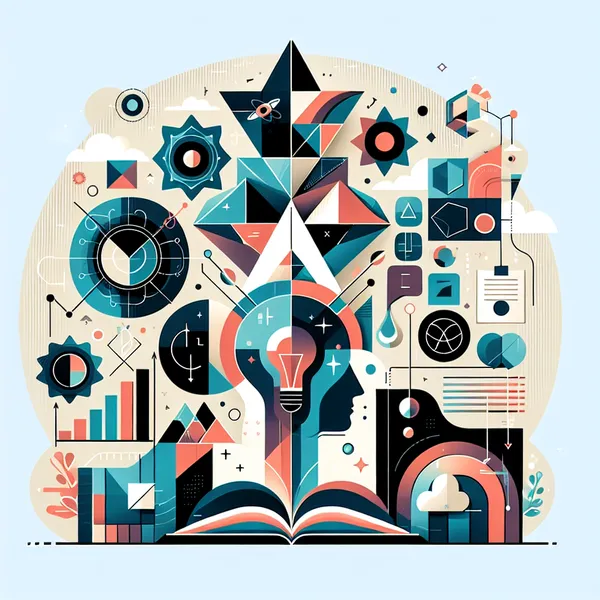
Ready to Start Your Wellness Journey?
Become a Herbalife Preferred Member and enjoy exclusive discounts of up to 25% on all products.
BECOME A PREFERRED MEMBERContinuous Learning: Transform Your Life with Practical Strategies
Continuous Learning: The Ultimate Key to Personal and Professional Growth in Today's Dynamic World
In an era where change is the only constant, continuous learning has emerged as the fundamental skill that separates success from stagnation. This commitment to ongoing education and skill development isn't just a buzzword—it's becoming increasingly essential for survival and growth in both personal and professional spheres. Drawing insights from Carol Dweck's groundbreaking book "Mindset: The New Psychology of Success," we'll explore how embracing continuous learning can transform your life trajectory and unlock unprecedented opportunities.
Understanding the Evolution of Continuous Learning
Historical Perspective
The concept of continuous learning has deep historical roots, evolving from traditional apprenticeship models to today's dynamic digital learning environments. Ancient civilizations valued the pursuit of knowledge as a lifelong journey, with philosophers like Socrates emphasizing the importance of questioning and constant intellectual growth. This foundation has shaped our modern understanding of learning as an endless pursuit rather than a finite achievement.
Modern Context and Relevance
Today's rapidly evolving technological landscape has amplified the importance of continuous learning. The World Economic Forum reports that 50% of all employees will need reskilling by 2025, highlighting the urgency of embracing ongoing education. This shift has transformed continuous learning from a luxury into a necessity for professional survival and growth.
Practical Implementation Strategies
Building Your Learning Framework
Establishing a sustainable continuous learning practice requires a structured approach. Here are key elements to consider:
• Create a personalized learning schedule that allocates specific time blocks for skill development
• Identify your primary learning style (visual, auditory, kinesthetic) and adapt your methods accordingly
• Utilize diverse learning resources, including online courses, books, podcasts, and hands-on experiences
Overcoming Common Obstacles
Many individuals face similar challenges when pursuing continuous learning:
• Time management difficulties
• Information overwhelm
• Lack of clear direction
Drawing from Dweck's research, developing a growth mindset is crucial for overcoming these barriers. View challenges as opportunities for growth rather than insurmountable obstacles.
Success Stories and Case Studies
Transformative Learning Journeys
Consider the story of Satya Nadella, Microsoft's CEO, who attributes his success to his "learn-it-all" rather than "know-it-all" mindset. His commitment to continuous learning transformed Microsoft's culture and market position. Similarly, organizations like Google have embedded continuous learning into their DNA through initiatives like "20% time," allowing employees to pursue learning projects.
Key Lessons from Industry Leaders
Successful continuous learners share common practices:
• They maintain curiosity and openness to new ideas
• They actively seek feedback and learning opportunities
• They implement learned concepts immediately through practical application
Scientific Foundation
Neuroscience of Learning
Recent neuroscientific research reveals that continuous learning physically reshapes our brains through neuroplasticity. Studies published in Nature Neuroscience demonstrate that consistent learning activities increase neural connections and cognitive resilience, potentially reducing the risk of age-related cognitive decline.
Research-Backed Benefits
Scientific studies have identified numerous advantages of continuous learning:
• Enhanced problem-solving abilities
• Improved memory retention
• Greater adaptability to change
• Increased innovation capacity
Creating Your Personal Learning Revolution
Strategic Implementation
Develop a personalized continuous learning strategy:
1. Conduct a skills gap analysis
2. Set SMART learning goals
3. Create a learning accountability system
4. Establish regular review and reflection practices
Measuring Progress and Success
Track your learning journey through:
• Regular self-assessments
• Documentation of applied learning
• Feedback from mentors and peers
• Achievement of predetermined milestones
The Future of Continuous Learning
Emerging Trends
The landscape of continuous learning is evolving with:
• AI-powered personalized learning paths
• Virtual and augmented reality training experiences
• Microlearning platforms
• Social learning networks
Preparing for Tomorrow
Stay ahead by:
• Developing digital literacy skills
• Building adaptable learning habits
• Creating diverse learning networks
As Carol Dweck emphasizes in "Mindset," the key to success lies not in fixed abilities but in our capacity to learn and grow. Continuous learning isn't just about acquiring new knowledge—it's about developing the mindset and habits that enable lifelong growth and adaptation.
Conclusion
Continuous learning represents more than an educational philosophy; it's a fundamental life strategy for thriving in our rapidly evolving world. By embracing this approach, supported by scientific research and proven success stories, you position yourself for sustained personal and professional growth. Remember, the journey of continuous learning is not about reaching a destination but about enjoying and growing through the process of discovery and development.
Start your continuous learning journey today by implementing one small step from this article. As you progress, you'll discover that learning isn't just about acquiring knowledge—it's about transforming who you are and what you're capable of achieving.
Ready to Start Your Wellness Journey?
Become a Herbalife Preferred Member and enjoy exclusive discounts of up to 25% on all products.
BECOME A PREFERRED MEMBER